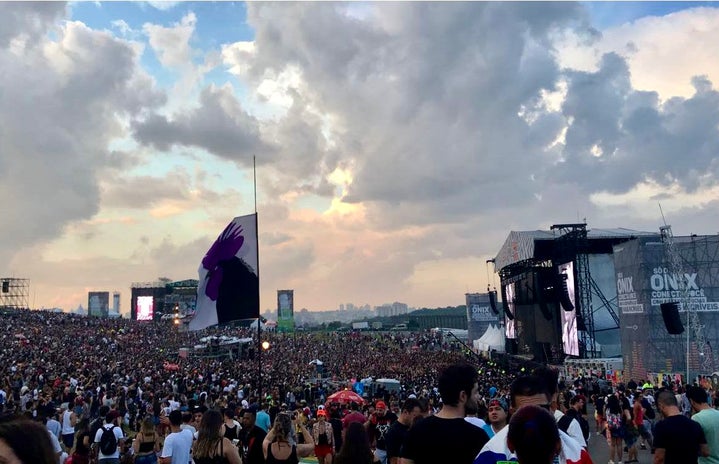Even though slavery in Brazil has been abolished since May 13th of 1888, cases of modern slavery have been more and more frequent at the backstages of the main music festivals in the country.
Lollapalooza is one of the biggest music events in Brazil, with multi-millionaire sponsorship and many different international artists in the headline. In its 10th edition in the country, the festival has reunited over 300.000 people. Nonetheless, it is the fourth time that the event has been caught using modern slavery methods. Similar cases happened in 2018, 2019, 2022, and again in 2023.
WHAT HAPPENED
Some days before the festival started, five employees working in slave labor conditions were rescued. They were responsible for carrying boxes for twelve hours straight and after the working hours, they were given cardboard boxes to sleep in. Furthermore, they did not have access to hygiene items or safety equipment.
”When it’s noticed that the workers are receiving way below what’s determined by the law, when they are working in unsafe places, working in exchange for food or they even are indebted with their bosses, that’s all aggravated by the crime of labor analogous to slavery. The crime is described in article 149 of the Brazilian Penal Code”, explains the criminal lawyer Matheus Guimarães Cury.
Lollapalooza’s outsourced companies, T4F and Yellow Stripe, are responding legally to the case. The employees involved were already indemnified with 10.000 reais.
WE HAVE SEEN THIS BEFORE
Unfortunately, this scenario isn’t new to Brazilian society. Social inequality makes people go through illegal labor conditions like the ones mentioned before. And also – the same inequality – enables a small percentage of people to pay more than a minimum wage for VIP tickets for one day at music festivals.
”These abused workers usually come from other states – or even countries – to be in exploratory conditions in wealthier states, which can even be aggravated by the crime of human traffic, also described in article 149 of the Brazilian Penal Code”, said the lawyer.
Lollapalooza has been accused several times for unethical working conditions and so has Rock In Rio and Rep Festival.
In 2015, seventeen workers were found in abusive conditions at Rock In Rio. They had paid 400 reais to travel from Sao Paulo to Rio de Janeiro just to work at the festival. Responsible for selling water for the crowd, they would make 2 reais for each sold water. Many of them were in debt to the company, which took their documents and didn’t provide any assistance, a place to sleep, or even food. ‘Batata no Cone, the company responsible for these employees, responded legally to the accusations and the workers were indemnified.
In its third edition, Rep Festival – a festival located at Barra da Tijuca, a rich neighborhood in Rio de Janeiro – celebrated rap and trap music, two music genres that have always criticized topics such as racism and social inequality. Sadly, the working conditions were nothing like the song’s lyrics. Again, many people claimed to be working in unsafe conditions, receiving less than what had been offered, working exhausting shifts and hygiene conditions were also a problem.
WHAT’S THE LEGAL EXPLANATION FOR THIS
Matheus explains that the companies must be supervised by the governmental departments that control labor conditions. Also, he reaffirms the importance of the right of indemnities: ”It’s important to notice the possibility of legal indemnities for the worker, specifically, and also collective indemnities which are pursued by the Brazilian Government Attorney’s Office of Labor”.
He finishes by explaining the reasons why this type of crime against workers is so common in the country.
”These exploitations are frequent and tend to happen constantly for multiple reasons, such as the lack of inspection and the workers’ social vulnerability. As they come from very underprivileged circumstances, with little or non-instruction, coming from distant places, considering still that, sometimes, they face communication problems for not speaking the place’s language, that social vulnerability tends to get worse over the time and harder to get rid of the exploitation situation”, concludes Cury.
——————————
The article above was edited by Isadora Costa.
Liked this type of content? Check Her Campus Cásper Líbero home page for more!



